Baskın Oran: Erdoğan will run into a wall
One of Turkey’s leading foreign policy experts, Prof. Dr. Baskın Oran, pointing to the ungovernability plaguing Turkey, said “I have at no time in my life witnessed a period in which Turkish foreign policy has been quagmired to this extent. Including in the Ottoman period.”
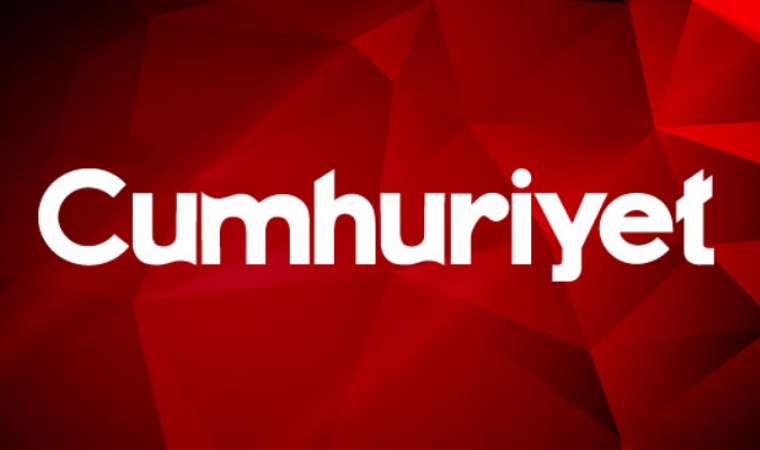
One of Turkey’s leading foreign policy experts, Prof. Dr. Baskın Oran, pointing to the ungovernability plaguing Turkey, said “I have at no time in my life witnessed a period in which Turkish foreign policy has been quagmired to this extent. Including in the Ottoman period.”
- The European Parliament has passed a resolution to freeze the accession talks; however much we hear from President Erdoğan that, “We have not cut off the ties,” it appears that Turkey wishes to rid itself of its EU obligations in the new period. That explains why it’s doing something like playing the Shanghai Five card.
I have been following Turkish foreign policy for a long time. In my entire life, not only have I never witnessed, but I have never heard or read about, a time in which Turkish foreign policy has been quagmired to this extent. Turkey is a strategic, medium-sized country. Strategic, medium-sized countries do not wish for any of the major parties to attain sole dominance in the region. They strive to maintain a balance between them. That’s the first point. The second is that they never clash with two parties at the same time. This would be to bite off more than they can chew. Turkey, for the first time in its history, is engaged in disputes with two parties at the same time. Turkey – and I include Ottoman history in this – has never been in dispute with two parties at the same time.
Come on, what more do you want? You are bringing down one another’s planes. Erdoğan gets up and says, “We went into Syria to depose Assad and didn’t go there for any other reason.” What more do you want? If Russia did not wreak a terrible vengeance, it is because it needs Turkey.
- Where do its needs lie?
It has been presented with a first-rate opportunity to split the Western block. Russia has been presented with such an opportunity for the second time in its history. We experienced the first of these in the form of the 1833 Treaty of Hünkâr İskelesi against the Governor of Egypt, M. Ali Paşa. Now, it is issuing an invitation to accompany the Shanghai Quintet on our tambourine in opposition to the EU and NATO. To a Turkey that has been closely involved with the West ever since the Tulip Period.
- Do you think Russia had involvement in the bombing and killing of the Turkish soldiers?
Only Syria and Russia have planes. If Russia didn’t mount the raid, then Assad did. And, would Assad dare to mount such a raid without Russia’s permission? It is also worth taking into consideration the former intelligence staff member’s warning about the 24 November anniversary.
- And Turkey played it down and all we heard were comments such as, “We’re making investigations and looking into it.”
This is a continuation of the apology to Putin. For the time being, Putin has given his OK, but let’s not forget that, just as Erdoğan never forgets and seeks revenge, so Putin never forgets, either. There is more than one Putin.
- Turkey is at odds with the EU, so Russia and the Shanghai Five appear to present themselves as an alternative. Can the Shanghai Five be a serious alternative?
- Is a country outside NATO and the EU not possible?
We are coming back to where we started. One of the guiding principles for a strategic, medium-sized country is not to clash with two parties at the same time. The second is to balance both parties. It is not a case of ‘either-or’.
- You may find it nostalgic and romantic, but we used to entertain the ideal of an independent Turkey. Is Erdoğan not to an extent promoting this in speaking of the national and speaking of the local?
He is not in any way promoting this. The theme in the 1960’s and 1970’s was love of the nation, now the theme is love of power. What I mean is the left-wing youth of that day wanted oppositon to the West to prevail in the interests of Turkey being independent from the outside world. Remember the slogan, “Neither America, nor Russia – a fully independent Turkey.” Now Erdoğan wants oppositon to the West to prevail because he is peeved with it for calling on him to return to democracy. After all, the Shanghai Quintet has no truck whatsoever with democracy. Like I said, one look at its members and you’ll be fixing bayonets. On the other hand, Erdoğan, in speaking of the national and local, is playing to a Pan-Ottomanism that continues to rankle among the opressed masses. This is the populist discourse of choice for courting the affection of the people. Certainly, Davutoğlu based his philosophy on this, but he was talking about ‘soft power’ – culture, schools, acting cordially towards Arab countries as opposed to before, etc. Erdoğan has openly gone to war, for heaven’s sake. We are currently at war in Syria!
- What business do we have there?
Firstly, to crush the Kurds. To crush the Syrian Kurds. Secondly, to assist the Islamists. Thirdly, to depose Assad. That is, to attack and depose the government of a neighbouring country. The third of these is of great consequence. These are not just my idle words – Erdoğan is known to have said this. He said, “That’s the only reason we’re there.” That’s not the only reason he’s there, but it’s an important reason. This brings us to the issue of the kind of decision maker Erdoğan is.
Erdoğan possesses three important characteristics. One of them is unconscious, the second sociological and the third conscious. His unconscious characteristic, whether from birth or due to environmental influence, is that he’s exeptionally hard and vengeful – he doesn’t forget but makes a mental note. A characteristic that leads to a refusal to let things go.
- Doesn’t this have a bit to do with him coming from Kasımpaşa?
Of course, the place you were born also has an influence. I don’t know if this was from birth or if it developed later. His second characteristic is the way he has fallen victim to the poisoning by power we call ‘hubris’. The reason I call it sociological is because this happens to a lot of people. Those who remain in power too long become poisoned by power. Think of Lord Acton’s famous words at the end of the 1880’s, “Power tends to corrupt and absolute power corrupts absolutely.” He cultivates the third characteristic consciously. He consciously creates anxiety and polarisation around him all the time, because the greater the polarisation, the more firmly his own ranks stand. There is also a very important rule of which he is aware: If you scare people enough they will seek refuge in authority. He is instilling anxiety and fear in the people so that they will seek refuge in the absolutist authority that he wishes to establish.
- And he’s succeeding in this.
That’s been the case up until now. But, this brings to mind a term that often features in discussions over development. This is not something ‘sustainable’.
- Why?
Because Erdoğan has entered a very narrow cul de sac. There’s no room for maneouvre. His personality stops him from going back, because once charisma takes a knock, you can’t put it right again and it evaporates. Erdoğan has managed to avoid any knocks to his charisma so far. In particular, he managed to emerge from 15 July with the appearance of being a very decisive, robust leader. His only option is to carry on and run into the wall at the end.
- Maybe there is no wall at the end of the road, professor. Perhaps it’s open.
It’s a cul de sac. It’s not sustainable, so it’s a cul de sac.
- Does this not create an expection that somewhat postpones the political struggle and leaves volition out of the equation? I mean, most recently Turkey has entered a state of emergency and raids have been conducted on the Cumhuriyet newspaper, the HDP and civil society but most people still call this situation unsustainable for various reasons. Fine, but perhaps it will be sustained.
It cannot be sustained because Turkey is suffering from un-gov-ern-a-bi-li-ty! What is working well in Turkey just now, for heaven’s sake? Is it foreign policy? Is it the economy, domestic politics or social psychology? Tell me one single thing that is working well.
- It’s not working well, but it’s working.
I’m reminded of a joke. A student gives the wrong answer to every question in the middle school finishing exam. Somebody on the panel tells him, “Off you go and come back next year.” The kid gets into a panic and begs, “Ask one last question, give me a chance, and if I don’t know, then that’s that.” “OK,” says the biology teacher, “If you cut a worm in two, can it live?” The child says, “It can’t.” The teacher says, “That’s it. Outside. Because both halves live.” So, the kid replies, “Sir, it lives, but do you call that living?” Do you call that working? Things are not working anywhere, but we’re heading for the precipice as far as the Kurds are concerned. We are now losing the Kurds. Among young people, there’s nobody left in this country who says “I’m Turkish by citizenship.” There are no Kurdish young people left who sense any attachment to Turkey. We’ve locked Ahmet Türk up, for heaven’s sake. What more can you say? The only matter for debate is whether to sentence the unjailed HDP people to life imprisonment or to 230 years. That’s all that’s up for debate. Makbule, the mother of 12-year-old Uğur Kaymaz, who was gunned down in his slippers in front of his home and struck by thirteen bullets when his father was killed, has been sacked from her job. Veli Saçılık, whose arm was ripped off in a raid on a prison and was found in a dog’s mouth, has been sacked under a decree with the force of law. If you’ve got time, I’ve got plenty of examples. The way those in power stay there is by spraying gas at people who come out onto the street, dragging those who don’t come onto the street off at two in the morning and holding them for months without indicting them and amending the law with decrees with the force of law. Anything goes.
- Given that things are so bad, how do they manage to stay in power?
There’s no alternative to them. There’s no opposition standing against them. Is Kılıçdaroğlu an opponent? Is Bahçeli an opponent? On top of this, you have people who, having escaped the scorn that was heaped on them by the secularists in the eighties and now finding themselves in power, are terrified that they’ll fall from power and have to spend time enduring that kind of scorn again. On top of this, they’ve created a socio-economic base for themselves and distribute state largesse through the construction sector. They exhort people not to shop in foreign currency, but charge the toll for crossing the bridge in dollars. Note carefully that there is not a murmur about the distribution of largesse. Are these contractors and so on now going to want this order to end and these rulers to go?
- Well, how can this be? There’s plenty of talk of the need for a broad opposition alliance.
Under the prevailing conditions, I don’t see an anti-Erdoğan alliance in the foreseeable future.
- Who or what is blocking this?
Apart from state terror keeping people firmly in place, this is basically down to the CHP. The CHP still insists on being the CHP of the 1930’s. There are sensible people and young people among them who want to take the CHP into the 21st Century, but their voices are weak just now.
- Did we break off from the question of why Turkey is in Syria?
The coffins returning from the fight against the PKK still meet with exclamations of, “I will gladly give up my son,” but when the number of coffins coming from Syria increases, they won’t say this. They’ll start saying, “Why did you send my son to his doom in the deserts of Arabia?”
- Recep Tayyip Erdoğan does not take ‘No’ for an answer and has also fallen victim to great hope.
We can call that euphoria rather than hope. He was delighted when the ‘Arab spring’ started in Tunisia. And then when it spread to Libya and Egypt. It looked like the Muslim Brotherhood was on its way in. With it reaching Syria it reached our borders. Erdoğan was the chairman of the Turkish branch of the Muslim Brotherhood and its prospective leader. But this euphoria burst like a balloon pricked by a pin. Shariah did not come to Tunisia. Libya became mired in chaos. A complete reverse reaction in Egypt brought a Baathist in the form of Sisi and Turkey into altercation with Egypt, the natural leader of the Arabs. Hence, it was forced to make up with Israel. Things really came to a head with Assad preventing the Muslim Brotherhood from taking over Syria. This is why Erdoğan holds such a big grudge against Assad, the man he used go on family holidays with. Things really are this straightforward and simple. He holds such a big grudge that he is saying the most unsayable thing: He says, “We went into Syria to depose Assad and not for anything else.”
- But, he’s telling the truth.
You are so right. But, for a country to set out to overthrow a neighbouring country’s government is about as despicable as things get. The comical side of it all is that Assad cannot go to war against us because he is weak. We have now gone to war against Assad. Look, picture the following hypothetical situation. Imagine Syrian forces had entered Turkey on the pretext of deposing the Erdoğan regime and striking against anti-Assad guerrillas in Turkey and were engaging in, let’s say, the Kızılırmak Shield operation, and the Turkish military struck them. If this happened, Arab mothers would weep, but now it’s Turkish mothers who are weeping. It is this simple and pitiful.
- The CHP gave its approval to the resolution on the grounds that our use of preventative force against ISIL terror was legitmate.
There was only one reason the CHP announced that it would not participate in the Kartal rally with a few hours to go. Not to be equated with the HDP. Do you know what this reminds me of? Erdoğan stays in power thanks to a coalition. The AKP’s coalition with the soldiers, the MHP and the neo-nationalists. Remember them taking the Ergenekon crowd out of jail and paying them millions in compensation. The sole common denominator of this coalition, more appropriately named the Third Nationalist Front, is the degree of harshness they all advocate in their Kurdish policy.
- Is it that influential in Turkish politics?
The sole common denominator is this policy of harshness. That’s why the CHP is led around by the nose. It started with the lifting of the HDP MPs’ immunity and continues.
- Talk of harshness over the Kurdish problem makes me think ...
The 1930’s are coming. You had the Sheikh Said Rebellion five years ago. Dersim will happen in seven years. And Dersim has nothing to do with rebellion. Rebellion doesn’t come into what Dersim is about.
- You were on the commission of ‘Wise People’. Who put an end to the solution process? And is there any prospect of resuming the process?
Given that there is a fresh agenda every fifteen minutes in Turkey, doing that, making guesses, enters the field of astrology rather than astronomy. You are talking about horoscopes. But I can say the following about what killed that peace initiative that started thanks to Erdoğan. The public opinion surveys that Erdoğan commissions every week did. I mean the result that our commissions of wise people spread around seven separate regions of Turkey obtained ...
- What was that result?
I was assigned to the Aegean. I made two important observations in the region. One of these was that AKP people were nowhere to be seen. The sole exception to this was the warm reception we were given at Muğla University. The reason for this emerged later. The rector was the AKP’s candidate for mayor. This was my first conclusion. The AKP people vanished.
- Why did they vanish?
They didn’t want to support the process. Being equal with the Kurds was most alien for them. The second was that the neo-nationalists came out in deadly opposition. I chronicled all of these neo-nationalist attacks in my book entitled While Being Wise in the Aegean. This wise people project was a bold venture. Credit where credit is due: Nobody apart from Erdoğan could have undertaken this venture. Just as nobody apart from Erdoğan could have seen through those wonderful EU reform packages from 2003 to 2006, the most advanced democratic reforms that Turkey has ever seen. But Erdoğan became poisoned by power and it was also Erdoğan who put an end to the Kurdish opening as one who would countenance no rivals at all, would countenance no opposition, and saw that the votes would come to him if public opinion was polarised. Of course, greatly aided by the PKK’s bombs that had no discernible rhyme or reason.
- Did he end the process because he saw those votes falling in those surveys?
For sure. This will come out into the open before long. You don’t have to be a world-renowned authority to know this. I am telling you straight up: The AKP people vanished, the neo-nationalists attacked for all they were worth and the surveys also bore this out. We were just cannon fodder.
- You withdrew from the commission of ‘Wise People’ while the process was still continuing and said the process would not succeed.
I started saying that ever since the beginning of the trips. I said quite bruntly: “This is a huge venture. If we cannot come to an understanding with the Kurds and be brothers, we will be unable to sustain this country. This venture is very important, beneficial and patriotic, but if the reforms do not start immediately, the disappointment this will engender will break the Kurds away from us. After that, we will be unable to stick things back togethere.” I said this everywhere and it became clear as things moved forward that no reform or what have you was to be undertaken. For those one and a half months, I said at every meeting: “If reforms are not made you’ll get the opposite of what you’re aiming for.” Finally, I saw it wasn’t happening and announced that in protest I wasn’t going to the final meeting at Dolmabahçe.
- There is a popular characterisation of the AKP period that goes like this. Their agenda has always been the same from the outset. When they took power they were on their own against the soldiers. To stay in power, they promoted EU membership. That’s why they formed an alliance with the liberals. But, once they had taken full power together with the Gulenists in 2010, they returned to their own agenda. What came next was another matter – strife with the Gulenists. Plenty of people sum it up like this. How come an esteemed army of professors missed what the blonde auntie from Izmir saw?
Does this mean that the blonde auntie from Izmir knew better than the professors?
- Maybe we can say she sensed it better.
Is governance a matter of sensing? Let me ask the following. Did you support the admission of girls with headscarves into universitites? Did you support those persuasion rooms?
- I did not.
- There were people who, while calling for an end to the headscarf ban, said the day might come when they did that.
Of course there were. Unfortunately there were. I’m fleshing out the logic behind this. If I said those things, how can I swear today at somebody who kicks a woman wearing shorts on the underground? How could I look at myself in the mirror in the morning? So, what then are we to make of opposing a movement that for years has claimed that it wants to change and it wants to be democratic and telling it, “No, you are incapable of being democratic. You have crooked intentions. You have warped personalities. You have other designs?”
- Could support not be given while taking a critical approach? When the Turkish Penal Code was adopted, the socialists made a lot of criticism.
We all did. Things went crazy after 2006, anyway.
- What was so great about the AKP until 2006?
Until 2006 they brought out those EU harmonisation packages. I repeat, the most democratic reforms that have ever been introduced in the history of the Republic of Turkey until now.
- As someone who reported on those laws, I don’t think that the harmonisation packages that came out between the years of 2003 to 2006 made a notworthy contribution towards democracy.
These laws brought greater freedom of expression and less national security state. That was the first thing. The second was greater protection from the state. The third was the separation of thought from violence and criticism from defamation. The fourth was controlling the soldiers’ power. The fifth was the anti-torture regulations.
- Regulations to an extent were made, but until 2006, for example, nothing was dome about article 301, the bane of intellectuals. We saw the prosecution of public sevants who were implicated in the killing of Hrant Dink in 2007 being blocked by the government. When it came to the referendum, wasn’t it obvious what the government would do if it usurped the judiciary?
The answer to all of this came from Mehmet Ağar’s mouth. He said, “If we pull out a brick, the wall will come down.” These things are all really reflections of the way the state, meaning the deep state, had taken over Turkey. It’s not just Hrant’s murder, but Uğur (Mumcu)’s murder, absolutely all of those murders whose perpetrators went undetected. It’s not easy to fight. Then look at the AKP’s human qualities. Islamist, conservative to the core, statist to the core, tradesmen and big shots at its core.
- Is this not precisely why we should have had question marks about the 2010 amendment?
There is a saying: I’m the knight in shining armout and that’s the best I can do. After all, the AKP is hardly a revolution party. The AKP is an Islamist, conservative party. It is a party that defends the values of the Middle Ages. It gets up and says you can’t make laws that go against the social grain. So, it says you can marry a fourteen-year-old girl. What else can you say?
- Do you think you made a mistake over the 2010 referendum?
- What is your take on this kind of reaction to the ‘not enough but yes’ camp?
Attacking the ‘not enough but yes’ camp amounts to what is know in psychopathology as ‘projection’. Projection is a way of defending yourself where you attribute your own faults to the other person. The most latent form of this is exhibited by homosexuals. If a man attacks homosexuals a lot you want to keep your eyes on him. So, what do people desire to keep hidden here? The disgrace to do with 367. The voting quorum of 367 applied to the first two rounds. It was not the meeting quorum. Can you have a meeting quorum of 367? The CHP came out with this to prevent A. Gül from becoming president. The upshot of this was a move towards the president being elected by the people and today Erdoğan is using this as the justification for his unlimited power, saying, “The people directly elected me.” The 1930-model CHP brought this about.
How much does my unhesitant support count for? They get the state to agree to the nonsense over 367. Without even realising that they were shooting themselves in the foot.
- But they wanted to block them. When I say “you,” I mean those intellectuals whose voice carries clout in society who gave their support to the AKP. You had clout in society, after all.
I answered this a little earlier. Am I supposed to retort to one who expresses the desire to change that, “No, you cannot change?” Then, I’ll tell you something else. There has been great debate among historians over the role played by the individual in history and this is something that has been played down by Marxists, in particular, and rightly so. But, in exceptional circumstances, the individual’s role in history rises to prominence over all else. Had it not been for a person like Erdoğan, who is discinclined to accept rivals, was highly susceptible to poisoning by power and who saw creating strife between people as a means to stay in power, the AKP could by now have undergone a transformation into something like a European Christian democratic party, or could have done so in the near future. Erdoğan didn’t let this happen because Erdoğan wanted to stay in power and he saw strife as the means to this end. If he’d only sought domestic strife to this end, trust me, I’d be beholden to him, but he’s seeking strife externally. He has embroiled us in war. We are at war in Syria today. A few months ago they said they wouldn’t send ground troops there, and now ground troops have gone in. Are the coffins with the moon and star draped over them coming from discotheques?
- Why do you think Erdoğan is coming out in opposition to Lausanne? What lies behind this debate over the National Pact?
Erdoğan has entered Syria, but he will never be able to enter Mosul, becuase Mosul is a different story alltogether. Nobody wants Turkey there. Barzani doesn’t; he has said, “We must reach agreement with Baghdad over the Mosul operation.” This are the words of a man who wants independence from Baghdad. He got his Minister, Jabar Yawar, to say, “Turkey may not participate and foreign forces will be targeted by coalition aircraft,” too.
- That’s the most serious consideration, I imagine.
It is indeed the most serious one. The Turkmen are sixty percent Shiite and they classify themselves as Iraqi rather than Turkmen. Turhan Müfti, chairman of the Nationalist Turkmen People’s Party, says, “Turkey should obtain permission from the Iraqi government. We share common blood with Turkey, but we are Iraqi.” In the Iran-Iraq war that broke out in 79, all Iraqi Shiites acted in unison with Iraq and did not move over to Iran. A third point is that the Kurds don’t want it. The Kurds apart from Barzani don’t want it. On top of this, Syria doesn’t want it, nor do Iraq, Iran, the USA or Russia.
Erdoğan doesn’t want this, either. Erdoğan is just mouthing on about it. Why? He’s playing entirely to the house at home. He is whipping up Pan-Ottomanist sensation at home.
- He mentions the National Pact a lot in connection with this.
Only, I’m afraid that Erdoğan either doesn’t know what the National Pact is, or he imagines, as Ziya Paşa put it, “everyone to be blind and the whold world to be foolish,” and either scenario is a disaster in its own right. He says Lausanne gave Mosul away. True, very true. Mustafa Kemal was delighted to give it away, because he didn’t want to be burdened with the Iraqi Kurds, as well. His concern was to create a compact nation state out of the highly fragmented empire, which had disintegrated anyway, and to embark on Westernisation. So, he didn’t come out with, “I’ll take a bit of this and a bit of that.”
- His concern wasn’t to amass territory, you mean.
His concern wasn’t to amass territory, it was for a durable country. That’s why Mosul was abandoned at Lausanne in 1923, and not in 1926 as is imagined. It was under article three that defined Iraq’s border. According to that article, the Mosul question was left to negotiations between Turkey and Britain that were to last nine months. If no result was forthcoming, the matter would go before the League of Nations. Those nine months were pencilled in purely to keep the First Parliament quiet. It went before the League of Nations. And the League of Nations placed Mosul under British mandate.
- If we were to fully implement the National Pact, would there be a different outcome?
Why does Erdoğan keep on attacking Lausanne? Because he wants to present Mosul as being a victory even though he knows fine well he can’t go there. He wants to feed people with dreams so that he can become executive president. He’s just playing to the house at home. He’s trying to simulate the splendour of the Ottoman Empire. When he talks about the abandoning of 22 million square kilometres, that’s what the Ottomans gave up at Sevres. Lausanne got a whole load of places back. Where? At Sevres, the Bosphorous and Dardanelles went to the Allies, and the Izmir region was to have been given to Greece, and, in eastern Anatolia, the north to Armenia and the south to Kurdistan. Lausanne scrapped these plans. In feudal society, land is the only factor of production. For this reason, obtaining land is a great exploit and giving up land a great disaster. And people still have this feudal mentality. They go crazy when Erdoğan harps on about expansion. Amongst all the excitement, nobody notices that the National Pact, which creates such a furore in Turkey every time it is mentioned, amounts to a unilateral declaration. It was a unilateral declaration made by the Ottoman Parliament. People imagine this to have been some kind of international treaty. Every country has its equivalent of the national pact. Suppose Russia were to lay claim to Kars, Ardahan and Iğdır under its own national pact?
- It has no international significance, you mean.
It has none at all. Huff and puff all you like – it’s a unilateral declaration. On top of that, there’s an Article of Independence and Punishment Treaty. The seventh article of the National Pact, which has been erased from memory. It envisaged the initiating of an investigation into “those members of the cabinet, along with those who collaborated with them, who harmed the state and the people in participating in war starting from the crises that gave rise to the Great War until the opening of Parliament, in managing and guiding the war and generally in domestic and foreign policy.” It refers to the Armenian carnage. But at a time when the War of National Liberation had been embarked on, this article would have stood in the way of unity, and it was erased from memory.
- Because it is an internal declaration, it is not binding on the state, either.
It is binding on itself, of course. It binds nobody else. On top of this, article five of the National Pact left Ankara in a very difficult position at Lausanne, because this article said that we accepted the criterea for the protection of minorities that the Westerners had accepted for our neighbours.
- That is?
There were three criteria: racial, religious and linguistic minorities. However, at Lausanne, we said we didn’t recognise racial, religious and linguistic minorities and proposed giving minority rights to non-Muslims alone. The Westerners said, “Article five of your National Pact says such and such.” The Ankara delegation had to go to the ends of the earth to undo this. The Kurds were a racial minority and a linguistic minority. We did not even accept the ‘religious’ critereon and got round this by speaking of ‘non-Muslims’. A delegation member at the negotiations, Dr. Rıza Nur, said precisely the following, “The term ‘religion’ would have made two million Alevis, who are pure Turkish, into a minority” (My Life and Memoirs, volume one, page 1044). As opposed to nowadays, the founders of the Republic considered Alevism to be a different faith and were aware of this.

En Çok Okunan Haberler
-
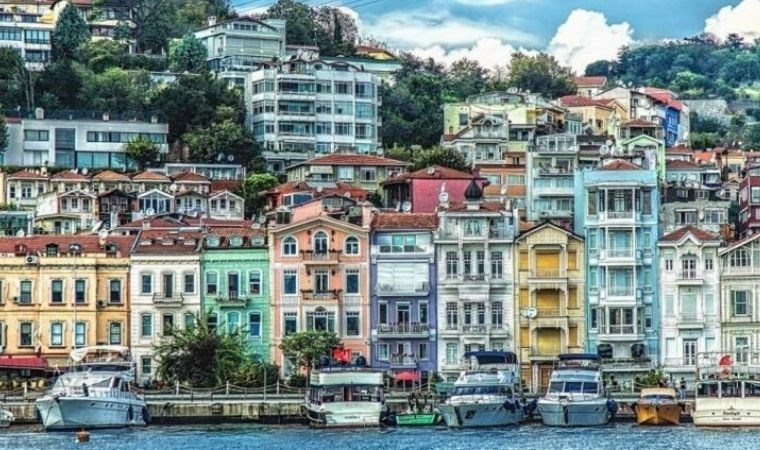 İstanbul’da yaşam kalitesinin yüksek olduğu 10 semt
İstanbul’da yaşam kalitesinin yüksek olduğu 10 semt
-
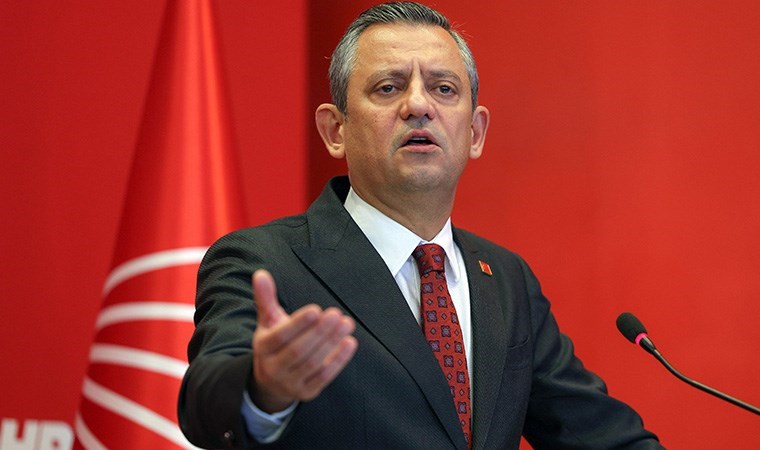 Özel'den Erdoğan'a 'Kılıçdaroğlu' yanıtı
Özel'den Erdoğan'a 'Kılıçdaroğlu' yanıtı
-
 Sorular sızdı, sınavlar iptal edildi!
Sorular sızdı, sınavlar iptal edildi!
-
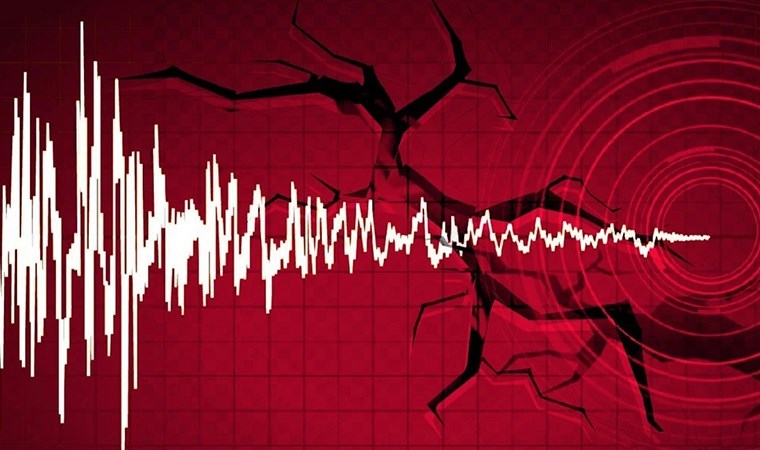 Karadeniz'de şiddetli deprem
Karadeniz'de şiddetli deprem
-
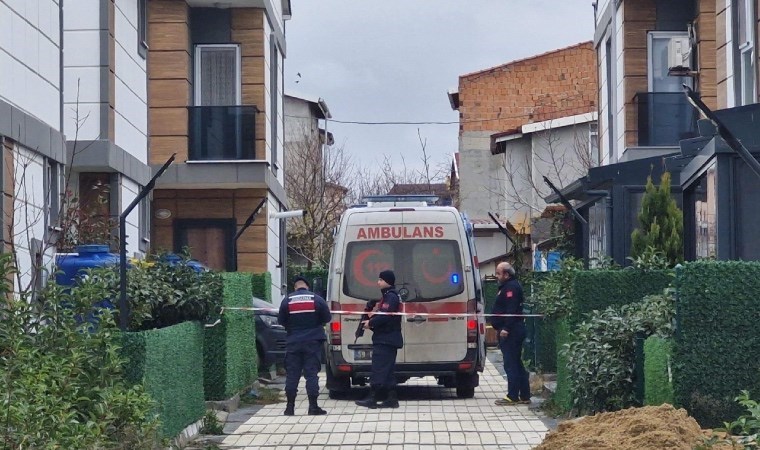 Eşini ve 8 yaşındaki kızını katletti, intihara kalkıştı
Eşini ve 8 yaşındaki kızını katletti, intihara kalkıştı
-
 İş insanı seyyar satıcıya çarpıp mesire alanına uçtu!
İş insanı seyyar satıcıya çarpıp mesire alanına uçtu!
-
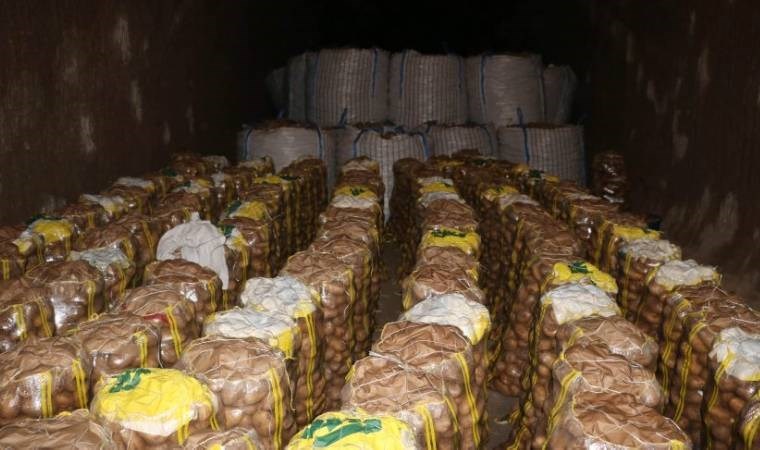 Tonlarca patates toplatılıp imha ediliyor
Tonlarca patates toplatılıp imha ediliyor
-
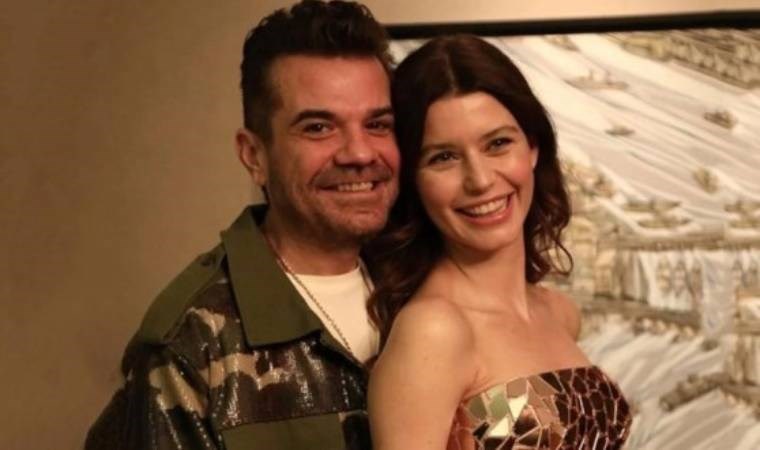 Ünlü çiftin Los Angeles'taki evleri kül oldu!
Ünlü çiftin Los Angeles'taki evleri kül oldu!
-
 Bakanlık, 'cayma hakkı' için tarih verdi
Bakanlık, 'cayma hakkı' için tarih verdi
-
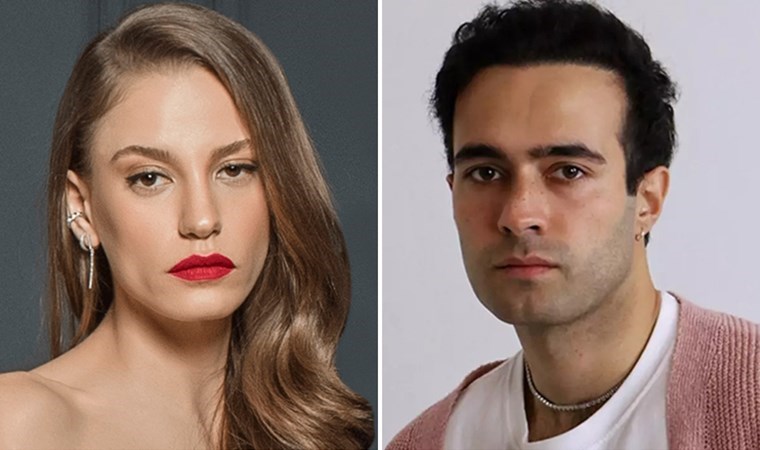 Serenay Sarıkaya ve Mert Demir hakkında yeni gelişme!
Serenay Sarıkaya ve Mert Demir hakkında yeni gelişme!